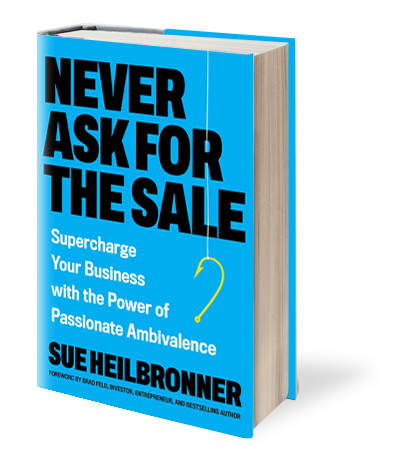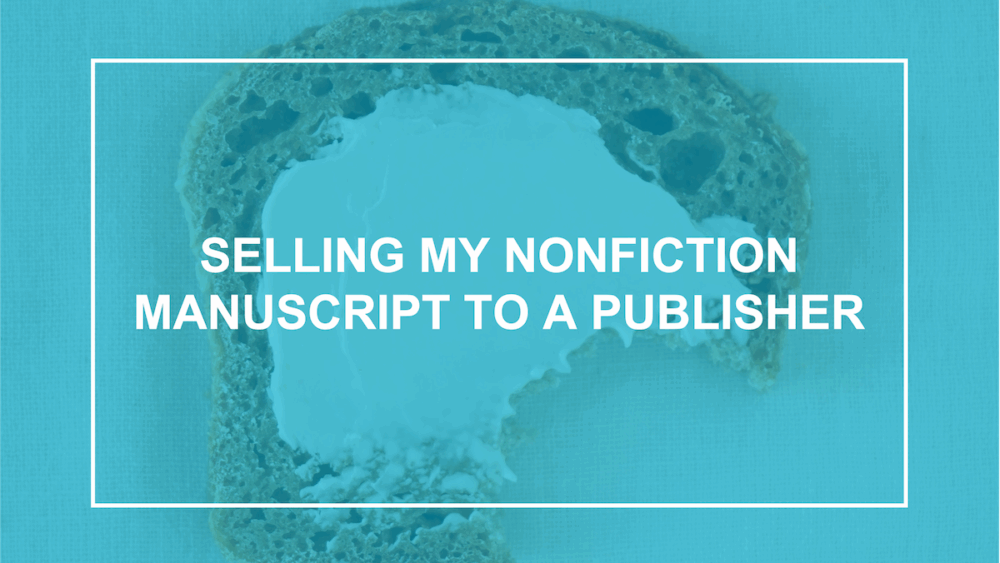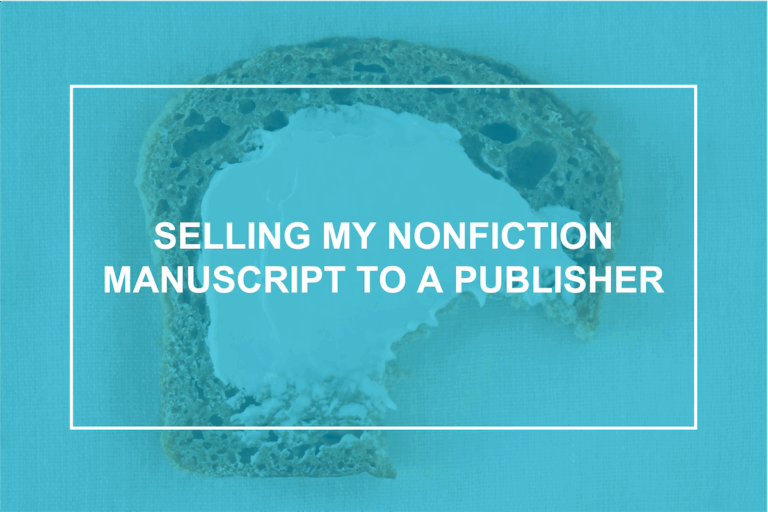Selling My Nonfiction Manuscript to a Publisher
When I left you, I had my book proposal for Never Ask for the Sale (then named “Youmanship”), a crack agent Michael Signorelli, and a hard-fought, decent book proposal. Michael had explained the process to me given the three week sales plan we had contemplated (remember the backup plan was to self-publish).
Michael pitched the proposal to a number of editors whom he felt would be a good fit for a business book focused on a contrarian sales technique. I think he reached out to 20-30 editors at major publishers (in some cases a few editors at one publisher under different imprints, though he explained that would ultimately result in only one offer from that publisher). We chose a few less-known outfits that he felt would have a particular affinity for this manuscript. Michael set up an auction deadline and a date by which all offers were due, we fielded expressions of interest with video meetings… and then we waited.
This was an intense time for me. I didn’t know Michael that well, and my fate sat in his (and others’) hands. My controlling personality type had to really chill. The process also was vulnerable. Yes, I had my backup plan, but by this point, after all the query writing and proposal writing and opening up my brain and heart to consider all the ways this book mattered and could succeed in a market, I really wanted to sell this manuscript.
Now, maybe you’ve heard that the publishing industry is slow. I had too. But I want to tell you that in this and so many other ways on this journey, the publishing industry moved FAST! We had a range of interest and a range of no thank yous. We had meetings set up to pitch the concept directly to a given editor within a day or two. I haven’t even seen many software selling processes that moved as fast as this moved. It was super. Even though we had a number of meetings with great potential editors, it was still sad to get the nos. They were nice nos. “Not for me.” “Not what I’d like to put my attention on.” “Not a good fit for our current strategic direction.” All the kindness you would expect from the superstars in their field being honest and wanting to maintain good relationships with a great resource (Michael), but they stung. Even with a self-publishing backup plan, even with multiple expressions of interest, the experience of handing something about which you care deeply (in my case something that touched upon key learnings from my life in business) and getting a “no” in return felt vulnerable even as things were going quite well.
Onward.
It was now time to conduct publisher meetings, and I had a great coach and guru by my side (Michael, again). That was an enormous help. Please let me say right now: getting an agent is not just a box you check in this process. Having a great agent, advocate, truth teller, and trusted resource in an industry you know nothing about is game-changing. Indispensable. Yes, they make a percentage of whatever you earn on your book. But honestly, that price is a pittance compared to the value they add at every single step in the process. And, they work with you on spec. They have no idea if what you’re about to market is going to work. Hopefully, they have a pretty good eye of what they can sell and to whom when they meet a “project” and an author, but for this first-time writer (in the publishing world), nothing would have been possible without a great agent.
Okay, back to the meetings. Michael had a prep document he shared with advice on how the meetings would go, what questions I should expect, what kinds of answers and length of answers would work, how to strike a tone of clarity balanced with openness, and more. Then he shared insights beyond the document. By this time, we both knew the content and idea we were shopping around, and we both understood the meta aspect of running a passionately ambivalent sales process for a book about passionate ambivalence. We embraced the irony. I was instructed to show up with a lot of passion and also a lot of looseness about how committed I was to my ideas, including the title. I was told to be open, flexible. Michael even told me that I need not share that, from my view, I’d “written the manuscript.” Our proposal shared a chapter or two and a proposed Table of Contents, but the idea was to convey an openness to collaboration around the rest. This made sense. These people know what they’re doing.
Like every fit call I’ve ever done and all the ones I write about in Never Ask for the Sale, these publisher intro calls were in substantial part (it seemed to me) about chemistry. And just like all sales, they were mutual chemistry evaluations. Obviously, the editor was assessing the context they couldn’t garner beyond the proposal (which included plenty about the manuscript as well as the market analysis and marketing plan we’d prepared), and I was, at the same time, wondering whether this given editor would “get me,” be enjoyable to work with, see the vision for what was possible for my book. But like all fit calls, my sense is it mattered to both parties that we liked each other and could see that it might be fun to work together.

I will not discuss all these calls. I will share that in one of them, an editor told me—as if it was just a suggestion to put butter on bread—that they would hire a “collaborator,” and we’d work on the project as a team. I nodded along on the Zoom at that mention, but I had to later ask Michael what a collaborator was. A ghost writer? Seemingly. Hey, no problem with that as an occupation or as a writing arrangement for others, but sheesh, I didn’t want that. I found it to be such an interesting assumption (or perhaps condition of working together? I’m still not sure as we didn’t move forward with that person).
I’ll share the one call that mattered most. We had the chance to speak with Dan Ambrosio, an editor who at the time was with Hachette Book Group. From the moment that call began, I liked and respected Dan. He had a good bit of business editing experience in his quiver; he had a great sense of humor; he was casual and direct. He brought genuine, amused scrutiny to the idea that he was being sold a book about selling that required a bit of ambivalence on both sides. It was a great call. I was managing my expectations, but I really was excited about working with Dan. Still, as you may know, there are committees of editor’s bosses and publisher marketing teams that gather to discuss the viability and wisdom of a project. So there were longer processes that would proceed after we hung up our call.
We had a near-term deadline for offers. That all happened. One offer was from Dan. We did a telephonic happy dance. There was a meaningful (to me and Michael) proposed advance. The advance would be paid to me and Michael in three chunks (contract execution, manuscript “submission,” publication). The book would come out 1.5 years after we came to terms.
We were publishing a book! 🎉
It’s all downhill from here, right? Up next: From Decent Draft to Submitted Manuscript – A Hard Slog With a Great Outcome
Any thoughts, feelings, or blurts? Share them here.


